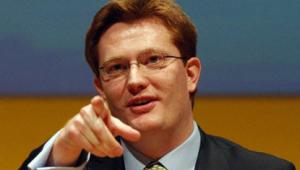In last week’s PF, Labour MP Alan Whitehead proposed a points-based alternative to the council tax. The LGIU believes this has merits, if supplemented with a range of locally set revenue-raising options
Why ask the question about reforming council tax now? Well, practically everyone agrees that England’s system of local taxation is messy. Tax seldom, if ever, receives positive press, but council tax — hastily designed with political expediency in mind — attracts the most scorn.
With each passing grant award, the distant property values of 1991 and the banding system they are moored to compromise it more and more, giving greater currency to the view that council tax is regressive.
On the plus side, it is difficult to dodge, has a predictable yield, and is relatively straightforward to understand. But while the richest fifth of non-retired households spend 2% of their annual gross income on council tax, the poorest fifth pay 5% — the Robin Hood of taxes it most certainly is not.
Messages from central government can be contradictory. For example, the government has reduced ring-fenced funding — John Healey, the local government minister, told the Commons earlier this month that some £5.7bn will be available for councils to spend as they wish in 2010/11.
However, ring-fencing remains, and as long as capping ensures that financial settlements are essentially enfeebling councils, it is difficult to argue that centralist tendencies are weakening.
To make effective local leadership a reality, the ties on the straitjacket of the existing system of financing local government need to be loosened further. Only then can the financial progress that has been made keep pace with accelerating policy and rhetoric.
But is a recession of this nature, when we are all bobbing like corks on uncharted economic seas, the right time to push for reform? We cannot wait for more benign waters to return. The tide is going out on council incomes, and the wave of increased pressure on services has already hit. The innovative local action required for rapid recovery and dealing with long-term problems such as housing simply will not happen without reform of some description.
So what of the solutions? As Labour MP Alan Whitehead indicated (‘Band aid for councils’, February 20—26), nothing can happen without a revaluation that would be palatable to the vast majority of people.
Whitehead’s suggested move to a local points-based property tax linked to capital value, maintaining regional differentials and reform of the flawed council tax benefit has strong merits. Crude banding and the ‘cliff edge’ boundary psychology it creates would disappear.
Others dismiss this as a sticking plaster on a fatally wounded patient, challenging the widely accepted place of property as the best basis for local taxation and suggesting, for example, a local sales tax. But serious questions abound about how this tax would potentially vary across boundaries.
Another option, local income tax, can be interpreted as unfair too. In Scotland, the Scottish National Party government has recently had to abandon its plans to introduce such a system until after the next election.
The Local Government Information Unit argues for more balance between revenue raised through a property tax and through other new local taxes. That council tax is currently the only form of taxation available to councils is unique in Europe. So we should consider a suite of taxes for local councils to adopt. Options include duties on alcohol and cigarettes, taxes to encourage environmentally friendly behaviour and healthier eating, and visitor taxes.
In the spirit of stronger local democracy, we can be more radical still. Imagine candidates fighting local elections in which they are required to put forward proposals for local taxes linked to genuine choices, maybe even for capital projects — and have the freedom to do so. Local determination and accountability would combat the notion that local politicians lack power and relevance.
But politics has got us to where we are today. As the economist John Kenneth Galbraith said: ‘Politics is not the art of the possible. It consists in choosing between the disastrous and the unpalatable.’
The Conservatives proposed a freeze on council tax through match funding set at 2.5%, itself perhaps a centralising decision. The toxicity of the issue has led to a general inertia among national politicians, who fear that it could bring down local and national governments, if it were allowed to run loose for too long.
Government makes ever more serious demands. Councils have not shirked from renewed responsibility. But with responsibility should come fundraising powers.
Central grants will always prove stultifying, limiting local innovation despite any technical power an authority has. More thought is needed on the complex issue of a properly funded system at a local level. As other certainties evaporate, let’s be sure taxes are fair for both councils and communities.
Andrew Collinge is director of policy at the Local Government Information Unit. This article is based on a roundtable convened by the LGIU in January










